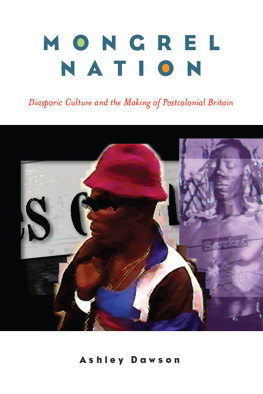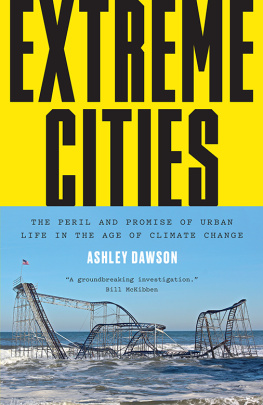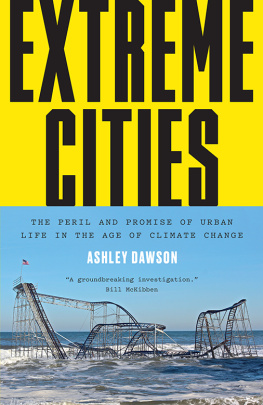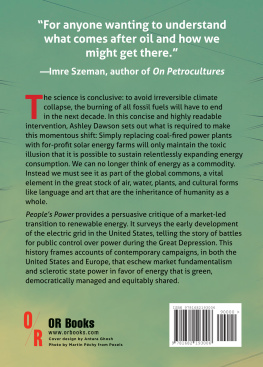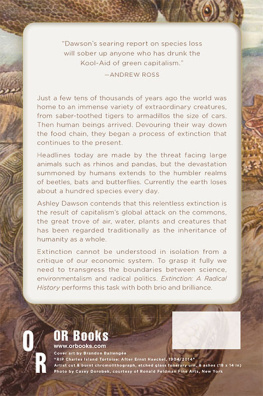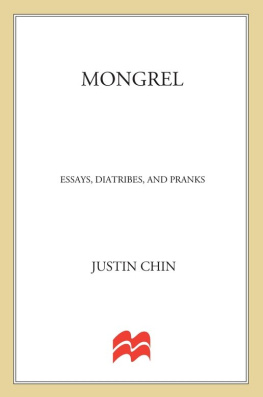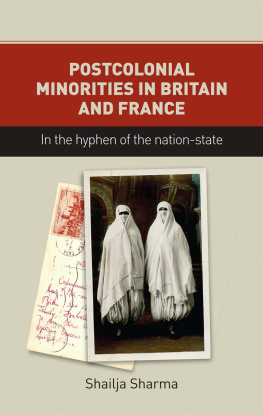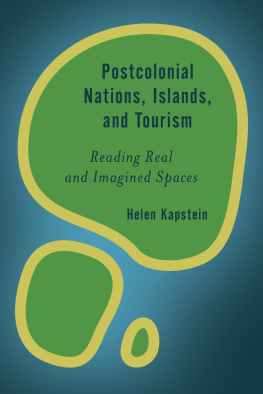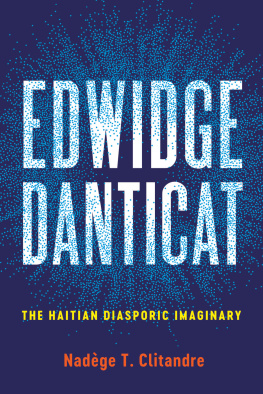Ashley Dawson - Mongrel Nation: Diasporic Culture and the Making of Postcolonial Britain
Here you can read online Ashley Dawson - Mongrel Nation: Diasporic Culture and the Making of Postcolonial Britain full text of the book (entire story) in english for free. Download pdf and epub, get meaning, cover and reviews about this ebook. year: 2018, publisher: The University of Michigan Press, genre: Politics. Description of the work, (preface) as well as reviews are available. Best literature library LitArk.com created for fans of good reading and offers a wide selection of genres:
Romance novel
Science fiction
Adventure
Detective
Science
History
Home and family
Prose
Art
Politics
Computer
Non-fiction
Religion
Business
Children
Humor
Choose a favorite category and find really read worthwhile books. Enjoy immersion in the world of imagination, feel the emotions of the characters or learn something new for yourself, make an fascinating discovery.
- Book:Mongrel Nation: Diasporic Culture and the Making of Postcolonial Britain
- Author:
- Publisher:The University of Michigan Press
- Genre:
- Year:2018
- Rating:4 / 5
- Favourites:Add to favourites
- Your mark:
- 80
- 1
- 2
- 3
- 4
- 5
Mongrel Nation: Diasporic Culture and the Making of Postcolonial Britain: summary, description and annotation
We offer to read an annotation, description, summary or preface (depends on what the author of the book "Mongrel Nation: Diasporic Culture and the Making of Postcolonial Britain" wrote himself). If you haven't found the necessary information about the book — write in the comments, we will try to find it.
Mongrel Nation: Diasporic Culture and the Making of Postcolonial Britain — read online for free the complete book (whole text) full work
Below is the text of the book, divided by pages. System saving the place of the last page read, allows you to conveniently read the book "Mongrel Nation: Diasporic Culture and the Making of Postcolonial Britain" online for free, without having to search again every time where you left off. Put a bookmark, and you can go to the page where you finished reading at any time.
Font size:
Interval:
Bookmark:
 Page i
Page i MONGREL NATION
Page ii Page iiiAshley Dawson
Diasporic Culture and the
Making of Postcolonial Britain
THE UNIVERSITY OF MICHIGAN PRESS
Ann Arbor
Page iv Copyright by the University of Michigan 2007
All rights reserved
Published in the United States of America by
The University of Michigan Press
Manufactured in the United States of Americac Printed on acid-free paper
Printed on acid-free paper
2010 2009 2008 2007 4 3 2 1
No part of this publication may be reproduced,
stored in a retrieval system, or transmitted in any form
or by any means, electronic, mechanical, or otherwise,
without the written permission of the publisher.
A CIP catalog record for this book is available from the British Library.
Library of Congress Cataloging-in-Publication Data
Dawson, Ashley, 1965
Mongrel nation : diasporic culture and the making of postcolonial
Britain / Ashley Dawson.
p. cm.
Includes bibliographical references and index.
ISBN-13: 978-0-472-09991-7 (cloth : acid-free paper)
ISBN-10: 0-472-09991-4 (cloth : acid-free paper)
ISBN-13: 978-0-472-06991-0 (pbk. : acid-free paper)
ISBN-10: 0-472-06991-8 (pbk. : acid-free paper)
1. English literatureMinority authorsHistory and criticism.
2. English literature20th centuryHistory and criticism. 3. Commonwealth literature (English)History and criticism. 4. Postcolonialism in literature. 5. Immigrants in literature. 6. Minorities in literature. 7. Literature and societyGreat BritainHistory20th century. 8. PostcolonialismGreat Britain. 9. Pluralism (Social sciences)Great Britain. 10. Ethnic groupsGreat BritainHistory20th century. I. Title.
PR120.M55D39 2007
820.9'3552dc22
2006036421
ISBN13 978-0-472-02505-3 (electronic)
D ANIEL D EFOE ,The True-Born Englishman
Thus from a mixture of all kinds began,
That Hetrogeneous Thing, An Englishman:
In eager Rapes, and furious Lust begot,
Betwixt a Painted Britton and a Scot:
Whose gendring Offspring quickly learned to bow,
And yoke their Heifers to the Roman Plough:
From whence a Mongrel Half-Bred Race there came,
With neither Name nor Nation, Speech or Fame.
In whose hot Veins new Mixtures quickly ran,
Infusd betwixt a Saxon and a Dane.
While their Rank Daughters, to their Parents just,
Receivd all Nations with Promiscuous Lust.
This Nauseous Brood directly did contain
The well-extracted blood of Englishmen.
T HIS PROJECT HAS BEEN VERY LONG IN THE GESTATION , and, consequently, bears with it an immense number of debts. If I have neglected anyone in this long list of thanks, I beg your forgiveness.
First of all, I would like to thank Rob Nixon, who encouraged me to think of myself as a public intellectual by example and through his consistent emphasis on the craft of writing. For this shaping impact and for the continuing help given since I finished my studies, I am and will always remain deeply grateful.
In addition, I must offer thanks to Jean Franco and Anne McClintock who, along with Edward Said, offered great inspiration to me during my graduate work. I will always be indebted to them for their powerful example as engaged intellectuals and teachers.
Members of Columbia Universitys Postcolonial Collective made the difficult life of a graduate student bearable. In particular, I want to acknowledge the impact of the many late-night conversations I had with Nikhil Pal Singh during these formative years.
While researching this manuscript I benefited from discussions with many members of Britains black and Asian communities. I very much appreciate the willingness of so many to discuss their work and lives with me during the research phase of this project. In particular, I would like to thank Paul Gilroy, Gita Saghal, A. Sivanandan, and Nira Yuval-Davis for speaking to me and, more broadly, for the inspiration they provided me as activists, thinkers, and writers.
I owe a great deal to my colleagues in the Department of English at the University of Iowa, where I was lucky enough to land my first tenure-track job. They provided a model of collegial warmth and conviviality during the stressful early years of my career. I was particularly fortunate to be associated with wonderful mentors such as Dee Morris, Brooks Landon, Philip Lutgendorf, Jael Silliman, and Paul Greenough Page viii during these years. I am also indebted to Iowa for various grantsincluding two Old Gold Summer Fellowships, the Miller Trust Fund Travel Grant, and a Deans Summer Travel Grantthat afforded me travel funding as well as time to research and work on this manuscript.
CUNY, my current home institution, has also generously aided me with relief from teaching through the PSC-CUNY Grant. My thanks to Janet Dudley Ng for her unstinting support as a friend and mentor during my early years at CUNY. More broadly, the militant struggle of colleagues within my home department as well as within my union in general for public higher education has been a tremendous inspiration while I was working on this manuscript.
I would also like to thank the two anonymous reviewers at the University of Michigan Press for their insightful suggestions on an early draft of this manuscript. I am of course to blame for any errors and/or dodgy historical and textual interpretations.
Thanks to extended family members John Dawson, Bernie Small-man, and Jim and Jane Pettit for putting me up in their homes in London during various stages of my research. And to Ann and Nigel Dawson, whose immense and unstinting love during the long years that I worked on this project can never be adequately repaid.
Finally, my deepest thanks go to Patrizia Palumbo and Sofia Palumbo-Dawson for their support and forbearance during this project. This project has grown up with you, Sofia, and yet you and your mother have seldom chided me for the time this twin of yours has taken away from you both. Thank you both for sticking by me to the end.
Page ix- 1 In the Big City the Sex Life Gone Wild
Migration, Gender, and Identity in Sam Selvons
The Lonely Londoners - 2 Black Power in a Transnational Frame
Radical Populism and the Caribbean Artists Movement - 3 Behind the Mask
Carnival Politics and British Identity in
Linton Kwesi Johnsons Dub Poetry - 4 Beyond Imperial Feminism
Buchi Emechetas London Novels and Black British
Womens Emancipation - 5 Heritage Politics of the Soul
Immigration and Identity in Salman Rushdies
The Satanic Verses - 6 Genetics, Biotechnology, and the Future of
Race in Zadie Smiths White Teeth - Conclusion: Step Back from the Blow Back
Asian Hip-Hop and Post-9/11 Britain
An Introduction
T HE ICONIC IMAGE OF POST-1945 MIGRATION TO B RITAIN UNWINDS on a grainy old Path newsreel. Standing on the wooden deck of a battered troop carrier named the Empire Windrush as it docks at Tilbury on 21 June 1948, the calypso singer Lord Kitchener offers up a lyrical performance of a song composed specially for the occasion. Lord Kitcheners London Is the Place for Me conveys the immense optimism felt by this initial group of migrants to the colonial metropolis:
London is the place for me
London, this lovely city
You can go to France or America
Font size:
Interval:
Bookmark:
Similar books «Mongrel Nation: Diasporic Culture and the Making of Postcolonial Britain»
Look at similar books to Mongrel Nation: Diasporic Culture and the Making of Postcolonial Britain. We have selected literature similar in name and meaning in the hope of providing readers with more options to find new, interesting, not yet read works.
Discussion, reviews of the book Mongrel Nation: Diasporic Culture and the Making of Postcolonial Britain and just readers' own opinions. Leave your comments, write what you think about the work, its meaning or the main characters. Specify what exactly you liked and what you didn't like, and why you think so.

